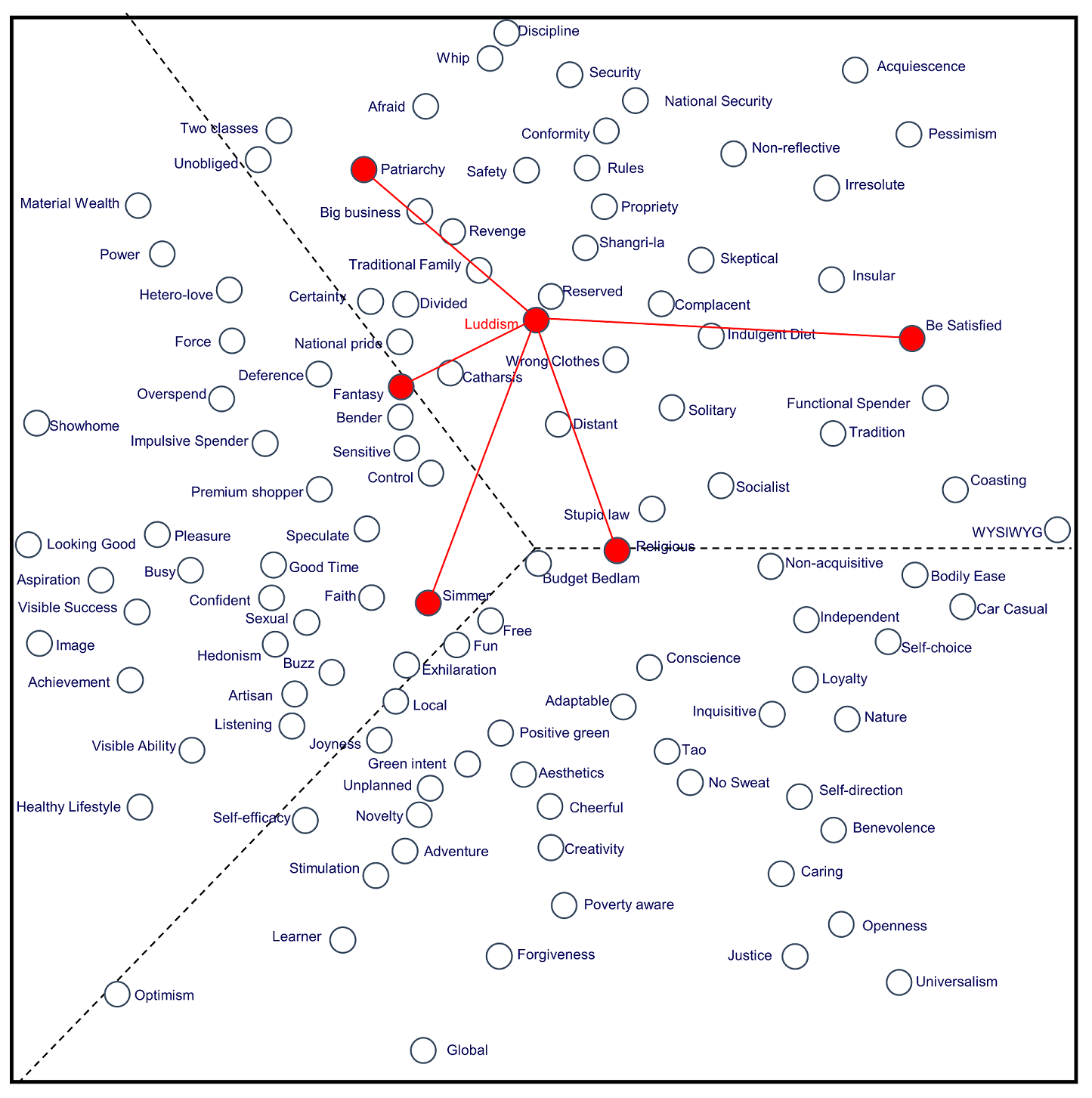

LUDDISM
 |
Programmable equipment scares me.
I find science and technology remote and incomprehensible.
Luddism espousers feel out of step with the modern technological age. They do not like or understand new technologies, particularly if they involve the use of computers. These technophobes are more likely to be women over 65 years of age and from lower income households.
Where others use technology to enhance and enrich their lives, Luddism espousers feel control of their lives slipping away from them and fear threatened by the rise of the machine. These feelings echo those of the original Luddites - skilled textile workers in Nottinghamshire in 1811, who feared the introduction of automated looms.
Nowadays, anyone struggling to operate their new smartphone or refusing to buy the latest gizmo risks being seen as a Luddite but the issue for the Luddism espousers runs deeper. It is that they see science and technology not as things that increase certainty but quite the opposite – everything just seems to get more complex and uncertain as time goes by.
Luddism espousers are not overly interested in buying bigger and better things. They tend to be satisfied with what they have and think that others should be that way too. They could never identify with Charles Dickens’ Oliver, because they could never see themselves asking for more.
Luddism espousers yearn for a simpler world that’s easier to understand. In their daydreams they can see that world clearly and it can be a real shock when they come back to reality. In those daydreams too, they can see themselves actually hitting out at the world that confuses and frustrates them so – perhaps seeing themselves rioting like those original Luddites.
Often, Luddism espousers have worked hard to create a better world for themselves and their families. In many ways they have helped to create the modern world, but they do not like the changes being made today. What was once modern is now part of everyday life, but now they are set in their old modern ways and do not want to change again. They tend to value the values associated with the past, where gender roles were clear – men went out to work and women took care of the home - and their moral code was taken from religious leaders telling them how they and other people should live their lives.
Using LuddismDemographic Skews: 1) Over indexed: Female, 65+, down market. 2) Under indexed: Male, 25-54. Luddism espousers also espouse other attributes. The top five most highly correlated attributes of Luddism espousers are, in order of the strength of relationship: 1) Religious In total those who espouse Luddism also over index significantly on 13 other Attributes. |
|
If "Luddism" (or the associated attributes) are important to you and you would like to delve more deeply, contact us at mail@cultdyn.co.uk
